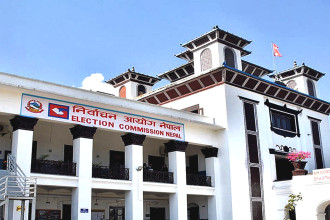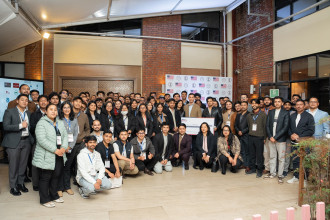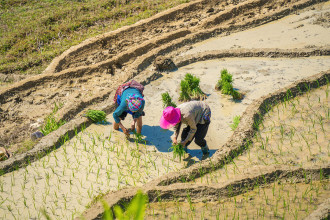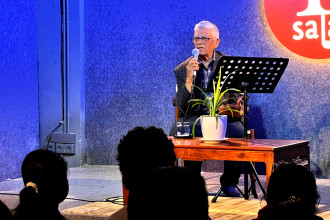-1763888829.jpeg)
BELÉM, BRAZIL: Global Compact Nepal (GCN) showcased Nepal’s sustainable private sector at COP30 in Belém, Pará, Brazil. The delegation pressed for accelerated climate action while attending networking events, panel sessions and high‑level meetings from November 10 to 21, 2025.
GCN Executive Director Krishna Bikram Shah represented Nepal’s business community in the Blue Zone, intervening at the High‑Level Meeting of Caring for Climate, convened by UN Assistant Secretary‑General Sanda Ojiambo, and highlighting UN Global Compact members such as Bahrasinghe, Pathao and Himalayan Java.
Shah spoke as a panellist on “Commitment to Net Zero Action,” organised by the Global Compact Brazil Network, where he cited net zero initiatives by GCN members, including Golchha Group, Goldstar and Himalayan Everest Insurance. He also gave closing remarks at a UN Global Compact panel on climate action, offering insights from the Global South and naming sustainable firms such as Purnaa and NEEK.
-1763888828.jpeg)
GCN participated in a side event organised by the International Organization for Migration (IOM) on human mobility and vulnerability to trafficking, spotlighting GoodWeave Nepal’s work rescuing and rehabilitating children exploited in the carpet industry. Shah summarised findings from GoodWeave’s report From Risk to Resilience, which shows how climate change is worsening child and forced‑labour risks in Nepal.
-1763888829.jpeg)
-1763888829.jpeg)
At the Global Compact Pavilion, Shah hosted a fireside chat with Felipe Franco, vice president of environmental policies at Air France–KLM, on sustainable aviation fuel (SAF) produced partly from used cooking oil. GCN said the initiative offers lessons for Nepal’s aviation sector, notably GCN member Yeti Airlines, and expressed readiness to help advance the dialogue.
-1763888828.jpeg)
-1763888828.jpeg)
-1763888828.jpeg)
GCN met Nepal’s ambassador to Brazil, Nirmal Raj Kafle, to discuss promoting Nepali businesses in Latin America, with emphasis on low‑carbon hand‑knotted Nepali carpets. The network observed government negotiations and held bilateral meetings to advance the Mountain Agenda and explore opportunities for a sustainable private sector in carbon trading.
Private sector representatives at COP30 urged stronger support for implementing climate solutions and stressed the role of business in delivering tangible, on‑the‑ground action.
The UN Global Compact is the world’s largest corporate sustainability initiative. Global Compact Nepal is the local network of the UN Global Compact, a voluntary, non‑binding UN pact that encourages businesses to adopt sustainable and socially responsible policies and to report on their implementation.






